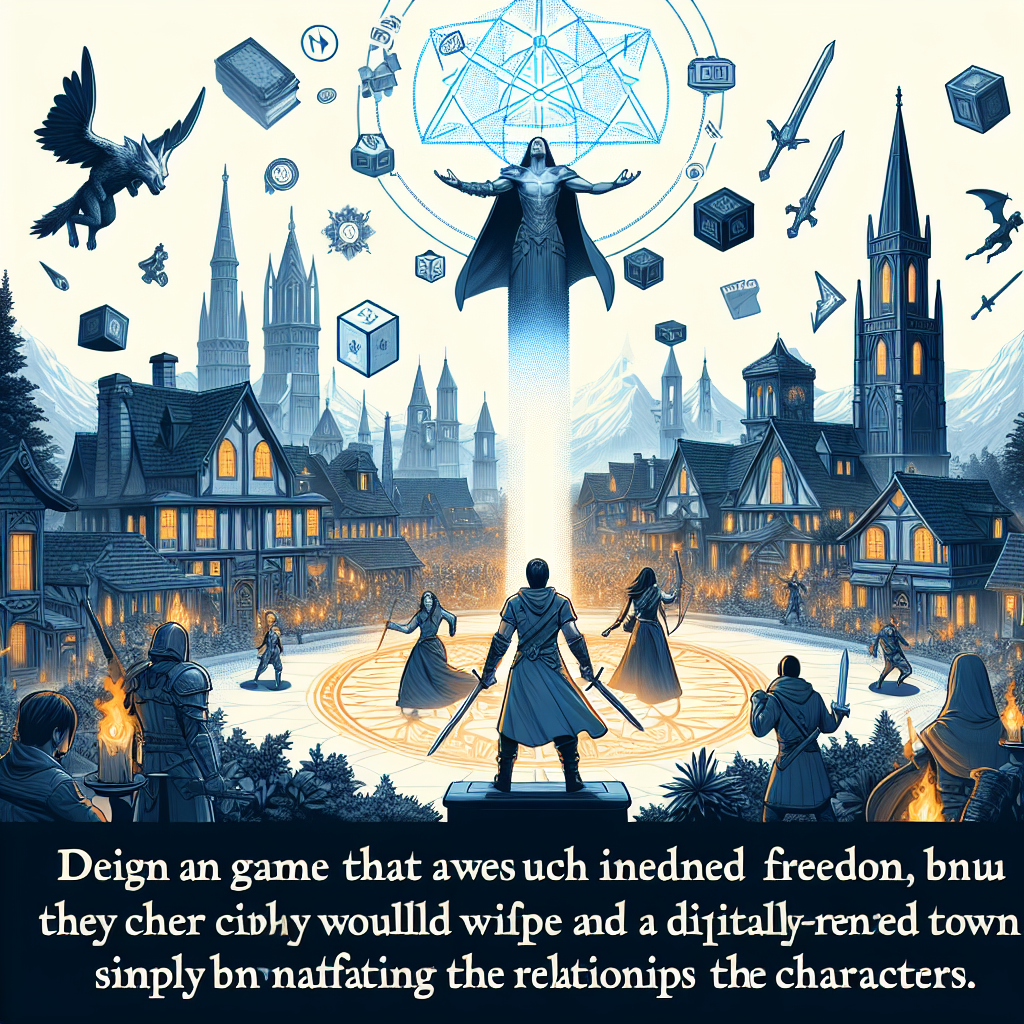An unexpected highlight of the PC Gaming Show: Most Wanted showcase was the unveiling of Unforetold: Witchstone, a game that has quickly garnered attention for its expansive and open-ended RPG sandbox experience. Drawing comparisons to the acclaimed Divinity: Original Sin, Witchstone offers a fresh take on the genre, diverging from the cinematic RPG production values to focus on creating a world that emphasizes player freedom and creativity. This approach promises to deliver a unique gaming experience where the player’s choices genuinely shape the game’s world and narrative.
Gameplay and Freedom
Unforetold: Witchstone introduces a groundbreaking influence system that allows players to interact with non-playable characters (NPCs) in a multitude of ways. Through the use of persuasion, intimidation, or even deception, players can shape their journey and alter the game’s world. This system is so robust that virtually any NPC encountered can potentially join the player’s quest, becoming a companion that aids in achieving the ultimate goal.
- Persuasion might sway an NPC to see things your way or reveal secrets they would otherwise keep.
- Intimidation can be used to coerce NPCs into action, but may backfire with the more courageous characters.
- Lying opens up avenues for manipulation, allowing players to deceive NPCs for personal gain or to advance in the game.
The way an NPC reacts to the player’s approach is not one-size-fits-all; it varies based on their personality and values. A brave warrior might not be easily threatened but could be susceptible to flattery or trickery. This intricate system adds a layer of depth to interactions, ensuring that players must think critically about how they engage with the game’s characters.
Character Building and Influence System
The character building potential in Unforetold: Witchstone is immense, offering players the ability to shape their avatar into a master manipulator or a valiant hero. The game’s influence system is a standout feature, allowing for the recruitment of companions and the manipulation of characters within the game’s world. This system is reminiscent of the one found in the cult classic Arcanum: of Steamworks and Magick Obscura, where high charisma could lead to a veritable army of followers. However, Witchstone takes this concept even further, removing the traditional limits and expanding the possibilities for player interaction and strategy.
| Feature | Description |
| Influence NPCs | Use persuasion, intimidation, or lying to shape NPC actions and loyalties. |
| Recruit Companions | Any NPC can become a companion, aiding in your quests and battles. |
| Manipulate Outcomes | Strategically influence events, such as framing a faction leader for murder. |
The flexibility of the influence system opens up a myriad of strategic options, such as framing a faction leader for the murder of a lieutenant, showcasing the depth of the game’s political and social mechanics. The creative director, Malik Boukhira, even suggests that with enough patience and cunning, a player could potentially cause the downfall of an entire town through manipulation alone. This level of control and influence is a testament to the game’s dedication to providing a truly dynamic and responsive RPG experience.
Anticipation for Unforetold: Witchstone
With its innovative gameplay and the promise of unparalleled freedom, Unforetold: Witchstone has quickly become one of the most anticipated games for many RPG enthusiasts. The game’s early access release is scheduled for January 25, and it’s already available to wishlist on Steam. The excitement for Witchstone’s potential to redefine the RPG genre is palpable, as players look forward to exploring its complex influence system and engaging in its tactical, turn-based combat.
Here’s a glimpse of what’s to come in the world of Witchstone:

